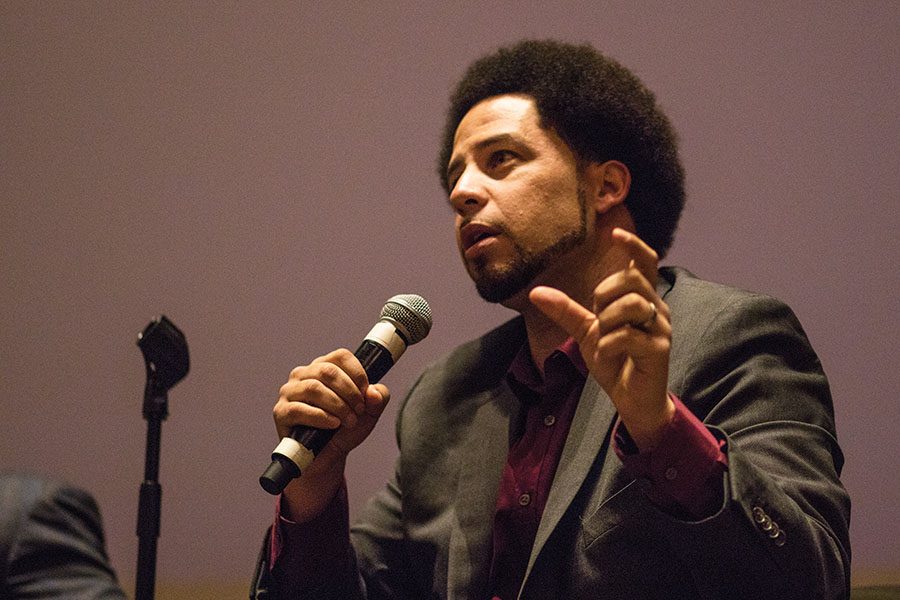A panel of San Diego State professors gathered to discuss the Black Lives Matter movement at Montezuma Hall in the Conrad Prebys Aztec Student Union on Feb. 29.
Although the event mainly focused on the movement, the panelists also covered the treatment — both past and present — of black men in American society.
It’s the third year in a row such a panel has been held at SDSU.
The panelists this year included professors Frank Harris III, Luke Wood, Paul Minifee, Luke Winslow. Professor Antwanisha Alameen-Shavers mediated the event, and Interdisciplinary senior Shane James also took part in the panel.
They talked about various problems related to racism and shared personal stories on a number of subjects.
Some of the topics covered included the treatment of minorities by police, systemic racism in education, a new movement of films focusing on the experience of being black in the US and relations between black men and white women.
The organizers said though the Black Lives Matter movement is centered on the treatment of one group, it’s open to all who are willing to help.
“The movement is focused on all black people, but the majority of the examples that are seen in the media are of black men,” said Wood, who teaches the “Black Minds Matter” class at SDSU. “Cases like those of Trayvon Martin, Michael Brown, Tamir Rice and here in San Diego with the case of Alfred Olango.”
Trayvon Martin in Florida, Michael Brown in Missouri and Tami Rice in Ohio all died at the hands of white police officers.
The officer who shot Olango was Hispanic.
Joquel Vásquez, an SDSU student, was at the event and said he enjoyed it very much.
“I love it because it allows for a dialogue in which multiple people and students (can) listen and hear about the Black Lives Matter movement, and not just the Black Lives Matter movement but all the issues that are pressing the community,” she said.
Vásquez said the panel gave the whole SDSU community the opportunity to take a look at their feelings on Black Lives Matter.
“(It allowed) students to reflect on where they stand in the movement and just the anti-blackness that we face in the community.”
The event ended with an opportunity for students and other members of the audience to ask the panelists questions.
One of the questions covered the idea that black women and black members of the trans community are not viewed equally with other groups.
“I think it’s very important to have this discussion because the perception of black men is something that has to be talked about,” James said. “I wanted to connect with other communities and topics because these problems also affect many other groups.”










